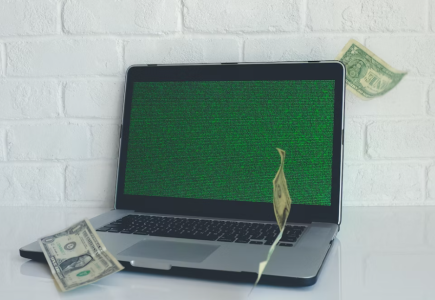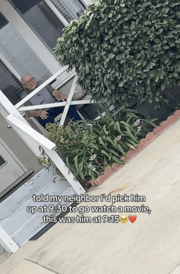This little-known program is mailing $500 surprise checks—here are the 2 requirements you must meet
- Replies 0
Imagine opening your mailbox and finding a letter that says you’re about to receive up to $500—no strings attached, no forms to fill out, and no scam in sight. Sounds like a dream, right?
The effort comes from a little-known initiative aimed at returning forgotten money. Many people are unaware that they may already qualify for the payments.
Checking now could keep you from missing out on cash that already belongs to you.
The Money Match program is Pennsylvania’s latest effort to reunite residents with their long-lost cash—think forgotten paychecks, old bank accounts, insurance payouts, utility deposits, and even the contents of dusty safe deposit boxes.
Every year, businesses and financial institutions are required by law to turn over unclaimed property to the state if they can’t find the rightful owner after a certain period. The state then holds onto it, waiting for you to claim what’s yours.
But here’s the twist: instead of making you jump through hoops, Pennsylvania is now taking the initiative. If you meet two simple requirements, the state will automatically send you a check for up to $500.

So, what are these magical requirements? They’re refreshingly straightforward:
You might be wondering, “How does money just get lost?” It happens more often than you’d think.
Maybe you moved and forgot to update your address, or a company misspelled your name. Maybe you switched banks and left a few dollars behind, or you never cashed that rebate check from years ago.
According to Pennsylvania Treasurer Stacy Garrity, the state receives hundreds of millions of dollars in unclaimed property every year—often for reasons as simple as a typo or an outdated address.
And it’s not just pocket change. The average claim in Pennsylvania is over $1,000! More than one in ten residents has unclaimed property waiting to be claimed.
We get it—when the government says they want to give you money, it’s natural to be skeptical. But this program is the real deal.
In fact, it’s the result of bipartisan cooperation between the Treasurer, the General Assembly, and the Governor.
As Treasurer Garrity puts it, “This is YOUR money we’re talking about, and I want to return it to you.”
If you get a letter from the Pennsylvania Treasury Department about the Money Match program, don’t toss it! It’s not junk mail or a scam. It’s your ticket to reclaiming what’s rightfully yours.
Also read: Thousands to get $1,702 in extra income—but only if they meet these rules
If your unclaimed property is worth more than $500, or if it’s jointly owned or otherwise complicated, you’ll need to file a claim the old-fashioned way.
But don’t let that stop you! The process is straightforward, and you can start by visiting the Pennsylvania Treasury’s website.
Pennsylvania isn’t the only state with an unclaimed property program. In fact, every state in the US has a similar system. You can check for unclaimed money in your name by visiting:
Just enter your name and state, and you might be surprised at what you find. Some people have discovered hundreds or even thousands of dollars they didn’t know they were missing!
Also read: Are Social Security increases really keeping up with your expenses?
Still not convinced? One man recently received a letter he thought was a scam, only to discover it was a legitimate notice from his state’s $45 million Money Match program.
Another state is currently distributing $200 million in unclaimed funds, with cash just a click away for eligible residents.
Read next: That letter about missing money might not be a scam—here’s what to know

Have you ever found unclaimed money in your name? Did you receive a surprise check from a state program? Or do you have questions about how to search for unclaimed property?
The effort comes from a little-known initiative aimed at returning forgotten money. Many people are unaware that they may already qualify for the payments.
Checking now could keep you from missing out on cash that already belongs to you.
The Money Match program is Pennsylvania’s latest effort to reunite residents with their long-lost cash—think forgotten paychecks, old bank accounts, insurance payouts, utility deposits, and even the contents of dusty safe deposit boxes.
Every year, businesses and financial institutions are required by law to turn over unclaimed property to the state if they can’t find the rightful owner after a certain period. The state then holds onto it, waiting for you to claim what’s yours.
But here’s the twist: instead of making you jump through hoops, Pennsylvania is now taking the initiative. If you meet two simple requirements, the state will automatically send you a check for up to $500.

No claim forms, no hassle, just a pleasant surprise in your mailbox or bank account. Image source: Kenny Eliason / Unsplash
So, what are these magical requirements? They’re refreshingly straightforward:
- You must be the sole owner of the unclaimed property. If the asset is jointly owned or has other complications (like being part of an estate), you’ll still need to file a traditional claim.
- The value of your unclaimed property must be $500 or less. If you’re owed more than $500, you’ll need to go through the regular claim process—but don’t worry, it’s still worth your time!
You might be wondering, “How does money just get lost?” It happens more often than you’d think.
Maybe you moved and forgot to update your address, or a company misspelled your name. Maybe you switched banks and left a few dollars behind, or you never cashed that rebate check from years ago.
According to Pennsylvania Treasurer Stacy Garrity, the state receives hundreds of millions of dollars in unclaimed property every year—often for reasons as simple as a typo or an outdated address.
And it’s not just pocket change. The average claim in Pennsylvania is over $1,000! More than one in ten residents has unclaimed property waiting to be claimed.
We get it—when the government says they want to give you money, it’s natural to be skeptical. But this program is the real deal.
In fact, it’s the result of bipartisan cooperation between the Treasurer, the General Assembly, and the Governor.
As Treasurer Garrity puts it, “This is YOUR money we’re talking about, and I want to return it to you.”
If you get a letter from the Pennsylvania Treasury Department about the Money Match program, don’t toss it! It’s not junk mail or a scam. It’s your ticket to reclaiming what’s rightfully yours.
Also read: Thousands to get $1,702 in extra income—but only if they meet these rules
If your unclaimed property is worth more than $500, or if it’s jointly owned or otherwise complicated, you’ll need to file a claim the old-fashioned way.
But don’t let that stop you! The process is straightforward, and you can start by visiting the Pennsylvania Treasury’s website.
Pennsylvania isn’t the only state with an unclaimed property program. In fact, every state in the US has a similar system. You can check for unclaimed money in your name by visiting:
Just enter your name and state, and you might be surprised at what you find. Some people have discovered hundreds or even thousands of dollars they didn’t know they were missing!
Also read: Are Social Security increases really keeping up with your expenses?
Still not convinced? One man recently received a letter he thought was a scam, only to discover it was a legitimate notice from his state’s $45 million Money Match program.
Another state is currently distributing $200 million in unclaimed funds, with cash just a click away for eligible residents.
Read next: That letter about missing money might not be a scam—here’s what to know
Key Takeaways
- A little-known Money Match program in Pennsylvania is automatically sending surprise checks of up to $500 to residents with unclaimed property, without needing to file a claim.
- Around 80,000 Pennsylvanians will receive letters in September notifying them of their upcoming payments, with checks arriving about 45 days later.
- The program covers unclaimed property with a single owner and up to $500 in value; larger amounts or more complex claims still require lodging a claim through the state's website.
- Residents of other states can check for unclaimed funds by visiting their own state’s website or searching missingmoney.com or unclaimed.org.






